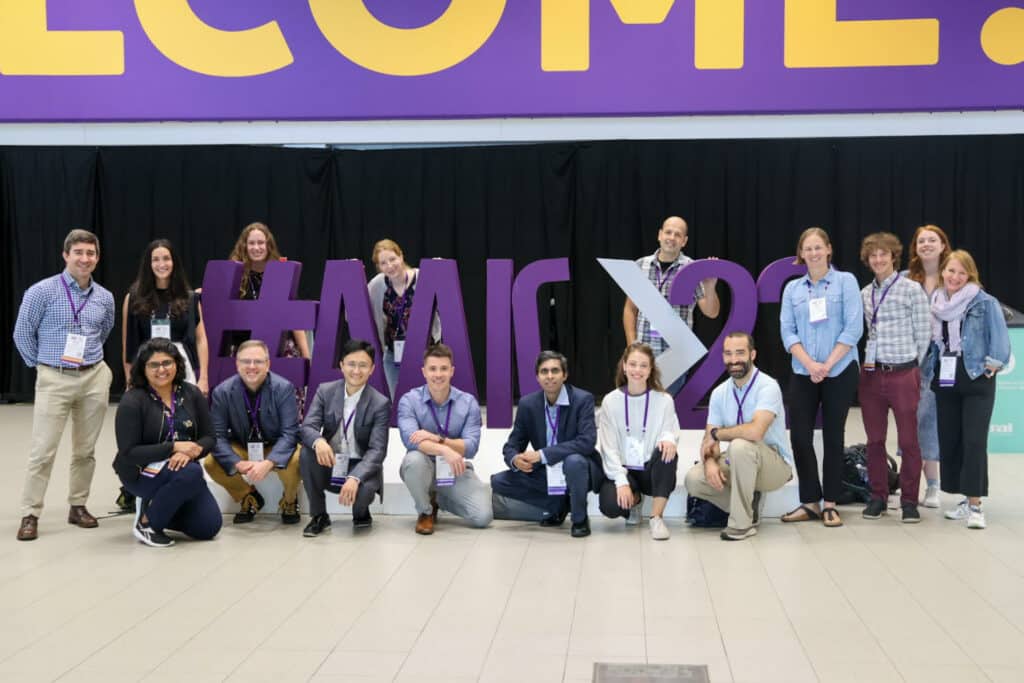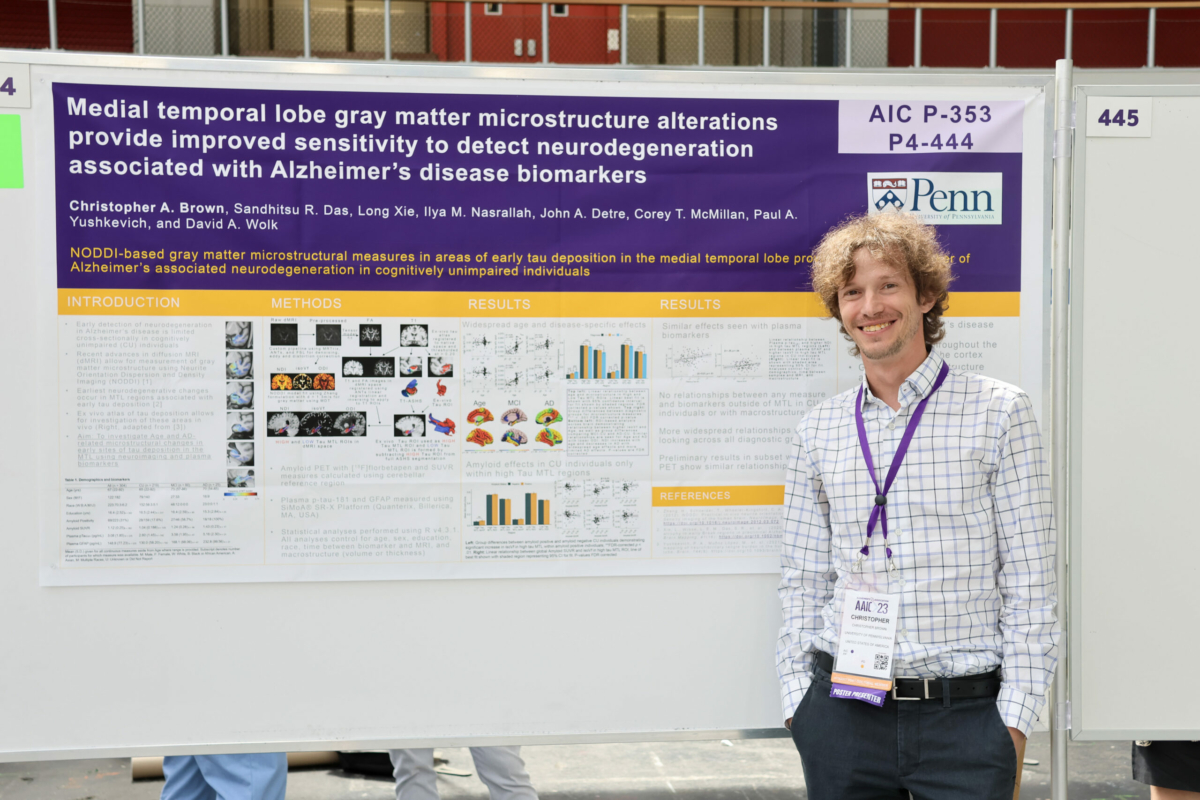
AAIC Exhibition Hall
By Cait Kearney
This year, more than 45 University of Pennsylvania scientists were among 10,000 attendees of the Alzheimer’s Association International Conference (AAIC) held in Amsterdam, Netherlands, and online. Researchers presented and discussed their cutting-edge research related to Alzheimer’s diagnostics, interventions, and basic science. Check out the conference and UPenn highlights below.
Conference highlights
Donanemab Phase 3 study results announced
The full results of the Phase 3 TRAILBLAZER-ALZ 2 study showed that the drug donanemab significantly slowed cognitive and functional decline in people with early symptomatic Alzheimer’s.
On NPR’s 1A, Penn Memory Center (PMC) Co-Director Jason Karlawish, MD, said the results are “significant” and, when combined with the recent approval of the Alzheimer’s drug Leqembi, mark a “potentially revolutionary” era in Alzheimer’s research and clinical care.
PMC Co-Directors Dave Wolk, MD, and Dr. Karlawish will give an update on anti-amyloid therapies for Alzheimer’s disease, including donanemab, at the upcoming PMC Community Discussion on August 14 at 4 p.m. Click here to register.
Simple finger prick test may detect Alzheimer’s
Research presented at AAIC found that blood testing from a simple finger prick may be enough to detect Alzheimer’s disease. This would make Alzheimer’s testing faster and more accessible.
“These findings are timely and important with the recent U.S. Food and Drug Administration approvals of Alzheimer’s treatments targeting amyloid-beta where confirmation of amyloid buildup and biomarker monitoring are required to receive treatment,” said Maria C. Carrillo, PhD, Alzheimer’s Association chief science officer. “Blood tests — once verified and approved — would offer a quick, noninvasive and cost-effective option.”
Hearing aids slow cognitive decline in older adults with hearing loss
A study of more than 900 individuals showed that a hearing intervention, which included hearing aids and counseling, slowed cognitive decline in adults who were at increased risk for dementia. More research is needed to understand why the intervention was beneficial.

Penn researchers at AAIC
UPenn highlights
Genetic variant may alter presentation, diagnosis of Alzheimer’s disease
A University of Pennsylvania-led research study suggests that a rare genetic variant called TREM2 increases one’s risk of Alzheimer’s disease but also causes atypical symptoms. This finding could have a significant impact on how the disease is diagnosed.
Someone living with Alzheimer’s typically seeks out a diagnosis after reporting concerns about memory. But someone with the TREM2 variant is more likely to notice issues with memory later on in the disease course. Instead, they may first notice difficulties with language, vision, and mobility or changes to their personality.
“We were able to demonstrate, with the largest brain autopsy study of cases with this genetic risk variant to date, that TREM2 variants are associated with these atypical Alzheimer’s disease symptoms,” said Edward Lee, MD, PhD, co-associate director of the University of Pennsylvania’s Alzheimer’s Disease Research Center.
Is one call enough? Penn researchers examine Alzheimer’s Association Helpline
One of the Alzheimer’s Association’s largest initiatives is its free, 24/7 Helpline, which receives more than 800 calls per day and connects callers with master’s degree-level care consultants.
Nancy Hodgson, PhD, RN, FAAN, chair of the department of biobehavioral sciences at the University of Pennsylvania School of Nursing, and her team her were asked to evaluate the Helpline and answer a very important question: Is the Alzheimer’s Association Helpline helpful?
Dr. Hodgson found that 80 percent of caregivers who called benefited from the Helpline in some way and that offering a callback helped caregivers feel better able to manage their emotional distress and cope with their situation.
More from UPenn researchers:
- PMC researchers develop digital cognitive assessment for dementia (Dawn Mechanic-Hamilton)
- Intergenerational program has benefits for patients with dementia, caregivers (Felicia Greenfield)
- The power of diversity and expanding the genetic landscape in Alzheimer’s disease research (Adam Naj)

Felicia Greenfield, Cait Kearney, Leah Fein, Meg Kalafsky
Cait’s Brain Bites Blog
Cait Kearney, a communications specialist at PMC, attended AAIC and kept a daily blog to reflect on her experiences at the conference. She also reviewed a Dutch food each day, like bitterballen and stroopwafel. Click here to read Cait’s blog.

